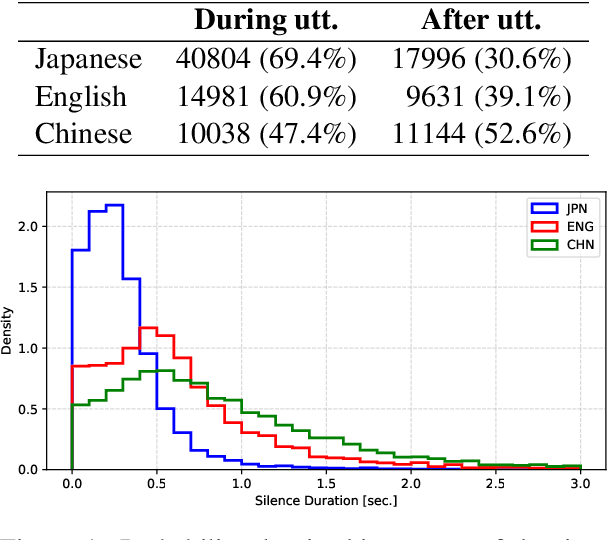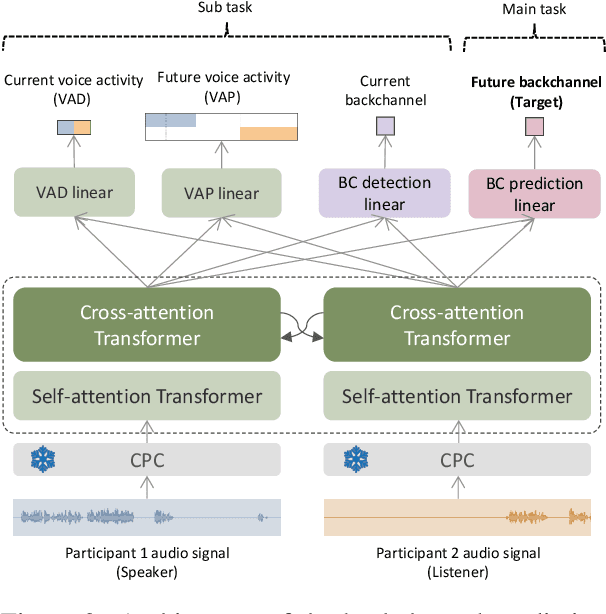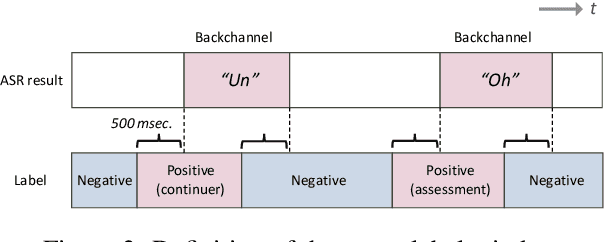Taiga Mori
Multilingual and Continuous Backchannel Prediction: A Cross-lingual Study
Dec 16, 2025



Abstract:We present a multilingual, continuous backchannel prediction model for Japanese, English, and Chinese, and use it to investigate cross-linguistic timing behavior. The model is Transformer-based and operates at the frame level, jointly trained with auxiliary tasks on approximately 300 hours of dyadic conversations. Across all three languages, the multilingual model matches or surpasses monolingual baselines, indicating that it learns both language-universal cues and language-specific timing patterns. Zero-shot transfer with two-language training remains limited, underscoring substantive cross-lingual differences. Perturbation analyses reveal distinct cue usage: Japanese relies more on short-term linguistic information, whereas English and Chinese are more sensitive to silence duration and prosodic variation; multilingual training encourages shared yet adaptable representations and reduces overreliance on pitch in Chinese. A context-length study further shows that Japanese is relatively robust to shorter contexts, while Chinese benefits markedly from longer contexts. Finally, we integrate the trained model into a real-time processing software, demonstrating CPU-only inference. Together, these findings provide a unified model and empirical evidence for how backchannel timing differs across languages, informing the design of more natural, culturally-aware spoken dialogue systems.
Towards Harnessing Large Language Models for Comprehension of Conversational Grounding
Jun 03, 2024Abstract:Conversational grounding is a collaborative mechanism for establishing mutual knowledge among participants engaged in a dialogue. This experimental study analyzes information-seeking conversations to investigate the capabilities of large language models in classifying dialogue turns related to explicit or implicit grounding and predicting grounded knowledge elements. Our experimental results reveal challenges encountered by large language models in the two tasks and discuss ongoing research efforts to enhance large language model-based conversational grounding comprehension through pipeline architectures and knowledge bases. These initiatives aim to develop more effective dialogue systems that are better equipped to handle the intricacies of grounded knowledge in conversations.
 Add to Chrome
Add to Chrome Add to Firefox
Add to Firefox Add to Edge
Add to Edge